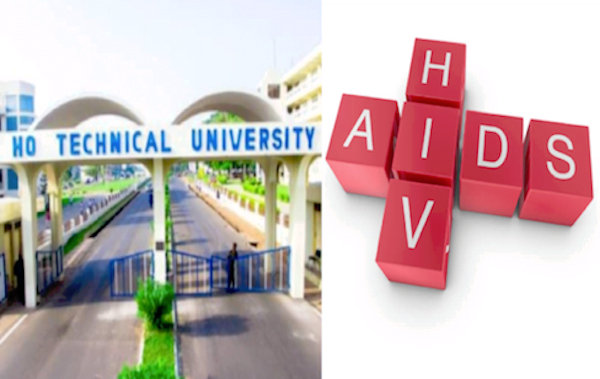The Volta Regional Health Directorate of the Ghana Health Service has refuted rumors circulating on social media about an HIV/AIDS outbreak at the Ho Technical University
Initially shared by a blog, the article claimed that more than 400 students had tested positive for HIV/AIDS and were instructed to leave the university. Without conducting proper verification, several individuals on social media shared and quoted this unverified report. However, the Regional Health Directorate has categorically stated that the publication is false and lacks any basis, urging the public to disregard it.
The Volta Regional Health Directorate has conducted a thorough analysis of HIV testing data from healthcare facilities in the Ho Municipality and the entire Volta Region. The results indicate that there has been no significant increase in recorded HIV cases within any facility or across the region as a whole.
The authorities have explicitly stated that there is no notable surge in HIV cases at Ho Technical University or any other tertiary institution in the Volta Region.
In response to the false reports, the Ho Technical University issued a statement emphasizing that there is no outbreak of HIV/AIDS on campus. The university assured students, faculty, and the public that all necessary measures are in place to ensure the health and safety of everyone within the university community. They encouraged individuals to rely on verified information from official sources and not to spread or believe in unsubstantiated rumors.
The Ghana Health Service has reiterated its commitment to combating HIV/AIDS and promoting accurate information about the disease. They emphasized the importance of responsible reporting and urged media outlets and social media users to verify information before sharing it. The Health Service further stated that spreading false information can create unnecessary panic and undermine efforts to address real health issues effectively.
As part of its ongoing efforts to address HIV/AIDS, the Volta Regional Health Directorate highlighted the availability of testing and counseling services within the region. They encouraged individuals to take advantage of these services, ensuring early detection, and providing appropriate care and support to those affected by the disease. The Directorate reiterated its dedication to providing accurate information to the public and working collaboratively with educational institutions to promote health and well-being among students.
FULL STATEMENT FROM THE VOLTA REGIONAL HEALTH DIRECTORATE ABOUT HIV/AIDS RUMORS ON HO TECHNICAL UNIVERSITY CAMPUS
FALSE REPORTAGE ON THE HIV INCIDENCE IN THE HO TECHNICAL UNIVERSITY
The attention of the Volta Regional Health Directorate has been drawn to an online publication by an unverified and unknown news portal ‘ajnewonline.com’ with the headline “Hookup Trend Leads to HIV Outbreak at Ho Technical University: Over 400 students suspected positive”.
The publication has subsequently been quoted by various social media actors without any form of due diligence.
The Regional Health Directorate by this release is informing the public to disregard the said publication since it is false and unfounded.
A review of the HIV testing data in all the health facilities in the Ho Municipality and the rest of the Volta Region does not suggest an increase in recorded HIV cases within any facility or the Region as a whole. For the avoidance of doubt, the region states emphatically that there has not been a surge of HIV cases in the Ho Technical University or any other tertiary institution in the Volta Region.
The Volta Regional Health Directorate and its partners have over the period successfully implemented several strategies to fight HIV/AIDS. These strategies seek to reduce new infections by 85% and eliminate mother-to-child transmission.
The Region however encourages its inhabitants to avoid stigmatization and fully lend themselves to the disease awareness campaigns and tailor-made services that meet their specific needs so as to consolidate the gains made in HIV prevention, testing, and treatment. HIV services are available in all private and public health facilities in the Volta Region.
The public is assured that their right to privacy and confidentiality will always be upheld as is the case in all disease conditions.
In conclusion, let us take note that HIV is still real, and all must endeavor to live positively through sexual abstinence or by both uninfected partners being faithful to each other, and by the consistent use of condoms.


